If you have high expectations will it ruin your trip?
Research has long shown that our expectations of upcoming events massively shape our perception of those events.
This is a regular feature about where we currently are in the world: how we ended up there, what it costs, and exactly what we think. Subscribe to our free travel newsletter here.
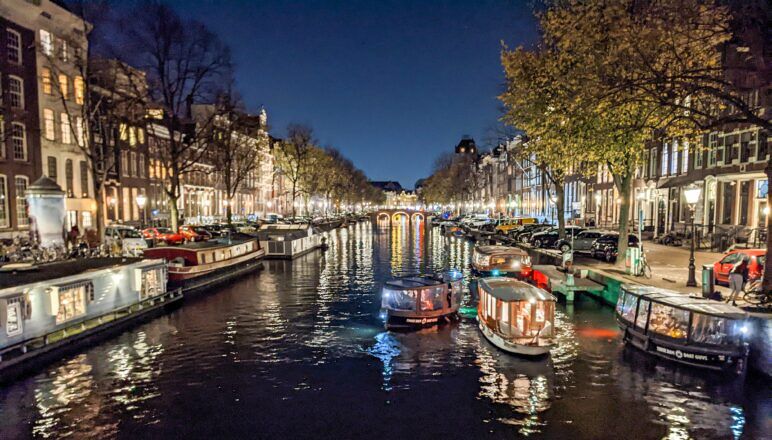
Two years ago, Brent and I visited Amsterdam, Netherlands, for the first time. We were both excited to finally see one of Europe’s most famous cities.
In other words, our expectations were very high. Those famous canals and the “dancing” houses? Anne Frank’s house? The Van Gogh Museum?
Pack your bags, we’re going on an adventure
Subscribe to our weekly newsletter for the best LGBTQ+ travel guides, stories, and more.
Subscribe to our Newsletter today
Alas, we both ended up pretty disappointed.
Sure, we liked the canals, the skinny Dutch houses, and the stroopwafels. And to be fair, it was November, so it was chilly, wet, and gloomy.
But the crowds were insane, and the price of almost everything was through the roof. We stayed in, hands-down, the worst hotel we’ve had in over a decade — and it was over $200 USD a night.
We just didn’t think Amsterdam was all that.
After Amsterdam, we visited a friend in Antwerp, Belgium. We had zero expectations of that city.
And we loved it!
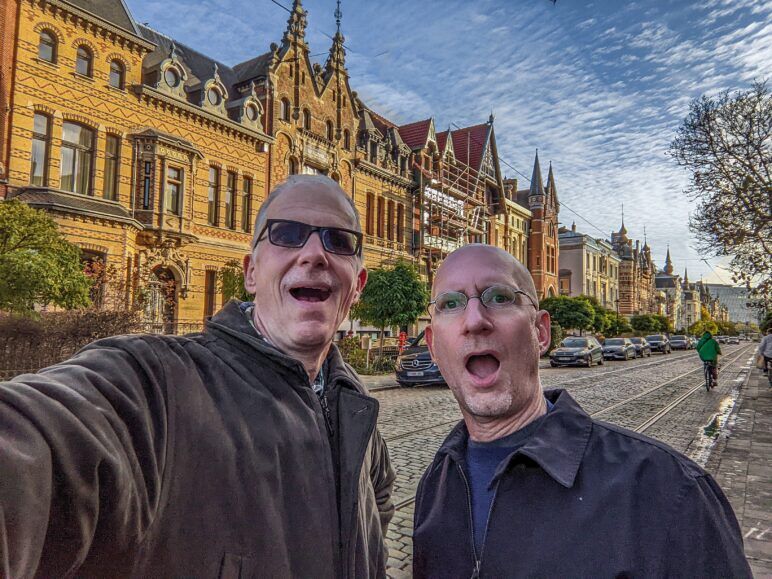
Was that because we had no idea what to expect of Antwerp? And did Amsterdam disappoint because our expectations were so high?
Most people would probably answer, “Well, duh.” The higher our expectations of, well, anything, the higher the chance for disappointment.
But is this necessarily true? We had very high expectations for Prague and Bangkok too, but we loved both cities.
Research has long shown that our expectations of upcoming events massively shape our perception of those events.
There’s also extensive research on how travelers develop high expectations, how they react to disappointing experiences, and how tourist operators can manage those expectations.
When it comes specifically to travel destinations, I decided to conduct some of my own research.
On myself!
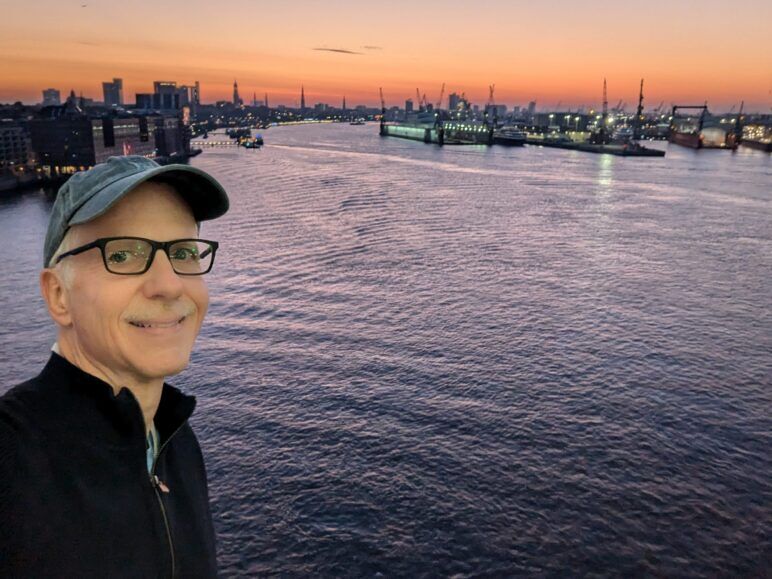
Brent and I recently took a cruise around northern Europe. I had high expectations for some ports of call and low or no expectations for others.
Yes, these were just brief cruise ship stops, which means I was dealing with first impressions. My feelings might have changed had I stayed longer. However, I still had a good, consistent sample of destinations for my experiment.
Did my expectations impact the actual experience of visiting these destinations?
I’ve detailed my feelings in this handy chart:

And here is my analysis of my reactions:
High Expectations
The two destinations we were most excited about were Bruges, Belgium, and Copenhagen, Denmark. Both routinely top lists of the most attractive cities in Europe, and online acquaintances had raved about both.
Because of all that chatter, I was sure I’d love both too: the canals and old-world charm of Bruges, and the architecture, castles, and “hygge” of Copenhagen.
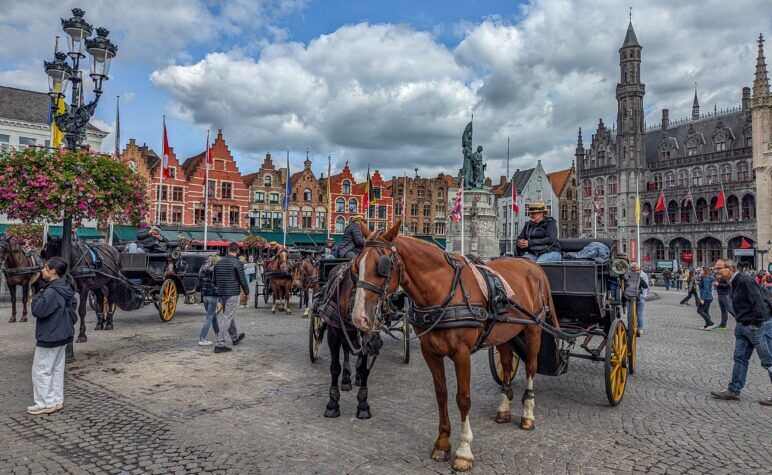
I did love Bruges — even more than I thought I would. And I loved it even though the city was mobbed with tourists, which I usually find off-putting. But the city’s incredible beauty and history — and, oh my god, the chocolate! — made up for the crowds.
But I was utterly underwhelmed by Copenhagen. I enjoyed the beautiful canals of Nyhavn, but almost everything else was “meh.”
Brent, a major amusement park enthusiast, was very excited to visit Tivoli Gardens, which we’d both heard was filled with charm and lovely gardens. I was especially keen for Tivoli’s photographic possibilities.
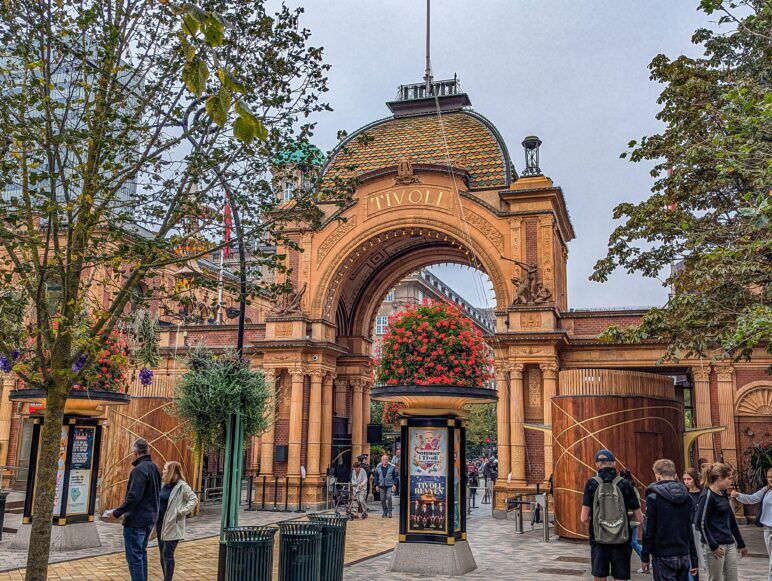
Alas, we both felt Tivoli didn’t hold a candle to other European amusement parks, like Prater in Vienna, Austria, or the Netherlands’ delightful Efteling Park.
Moderate Expectations
I had moderate expectations for Rotterdam, Netherlands, and Aarhus, Denmark — interestingly, both are the second-largest cities in their respective countries.
I knew that Rotterdam was mostly destroyed in World War II, and I’d read how it’s now primarily industrial and commercial spaces, lacking European “charm.” On the other hand, it supposedly had some pretty interesting newer architecture.
Aarhus, on the other hand, was a complete mystery.
Rotterdam had far more charm than I expected, and the architecture was truly impressive.

Meanwhile, Aarhus had beautiful parks, several excellent museums, and more great architecture. In a way, Aarhus was a more pleasant Danish experience than Copenhagen.
Low Expectations
Now for the “low expectations” destinations of Hamburg and Belfast. Both were low only because I knew so little about them ahead of time. I knew Belfast was the capital of Northern Ireland and was the center of “the Troubles,” the long-simmering conflict between English Protestants and Irish Catholics.
Meanwhile, Hamburg was…somewhere in Germany and maybe had something to do with the creation of the hamburger?
Neither of us liked Belfast. The city was smaller, grittier, and much less charming than we expected. And it was clear that the conflict between the Protestants and the Catholics was still simmering.
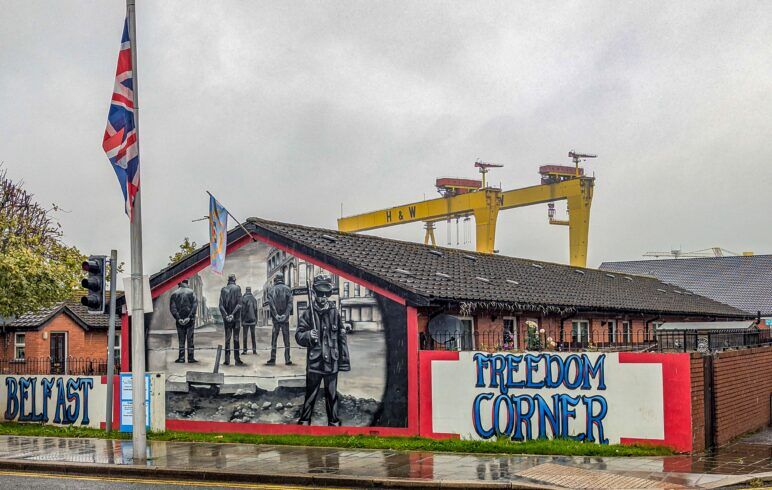
Unexpectedly, Hamburg was an utter delight. Who knew it had so many canals? I especially enjoyed its redeveloped waterfront and warehouse area.
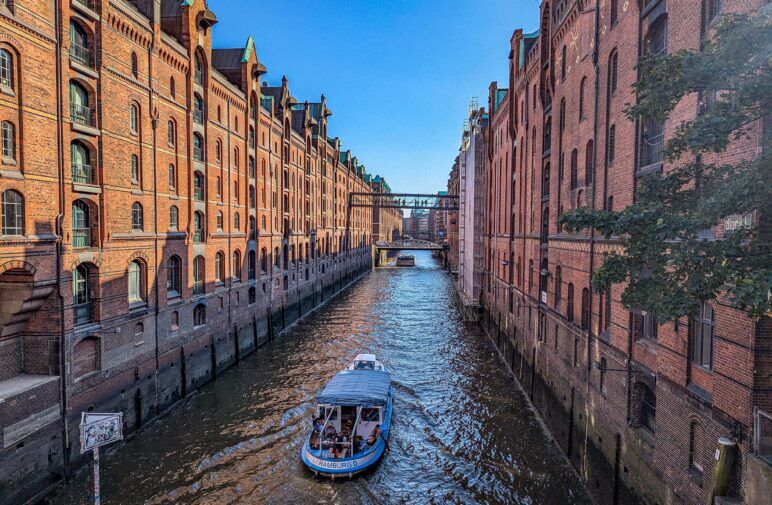
In Conclusion?
What conclusions can be drawn by this little experiment on myself? Do high expectations usually lead to disappointment? Does having low or no expectations of a place mean it will be a pleasant surprise?
The truth is, it depends.
In general, I think very high expectations are hard to live up to. I’d probably heard too many great things about Copenhagen — just like I’d heard too much about Amsterdam.
The reality could rarely live up to all the hype.
So why did Bruges live up to its hype? Maybe because my expectations were more vague? There was no one “thing” I especially wanted to see, like Tivoli Gardens. Or perhaps it’s because the city is just that charming.
Moderate expectations, on the other hand, seem pretty easy to exceed. After all, most places have some redeeming qualities. And if you don’t know about them ahead of time, discovering them yourself can make for very pleasant surprises.
As for low expectations, well, if you don’t exceed them, it doesn’t matter because you didn’t expect much anyway. I think underwhelming experiences you figured would be underwhelming are usually quickly forgotten.
Interestingly, I haven’t told many folks I was disappointed by Belfast. Frankly, I haven’t thought much about it since our visit. But I’ve told a lot of people what a let-down Copenhagen was. (And a surprising number have said they found it disappointing too.)
In short, human beings are crazy. Or at least I am.
But now I’m curious to go back to Amsterdam. My expectations for the city are now as low as can be.
Does that mean I’ll have a magical time the next time I visit? We’ll have to see.
Join the GayCities newsletter for weekly updates on the best LGBTQ+ destinations and events—nearby and around the world.

 Mark
Mark 





